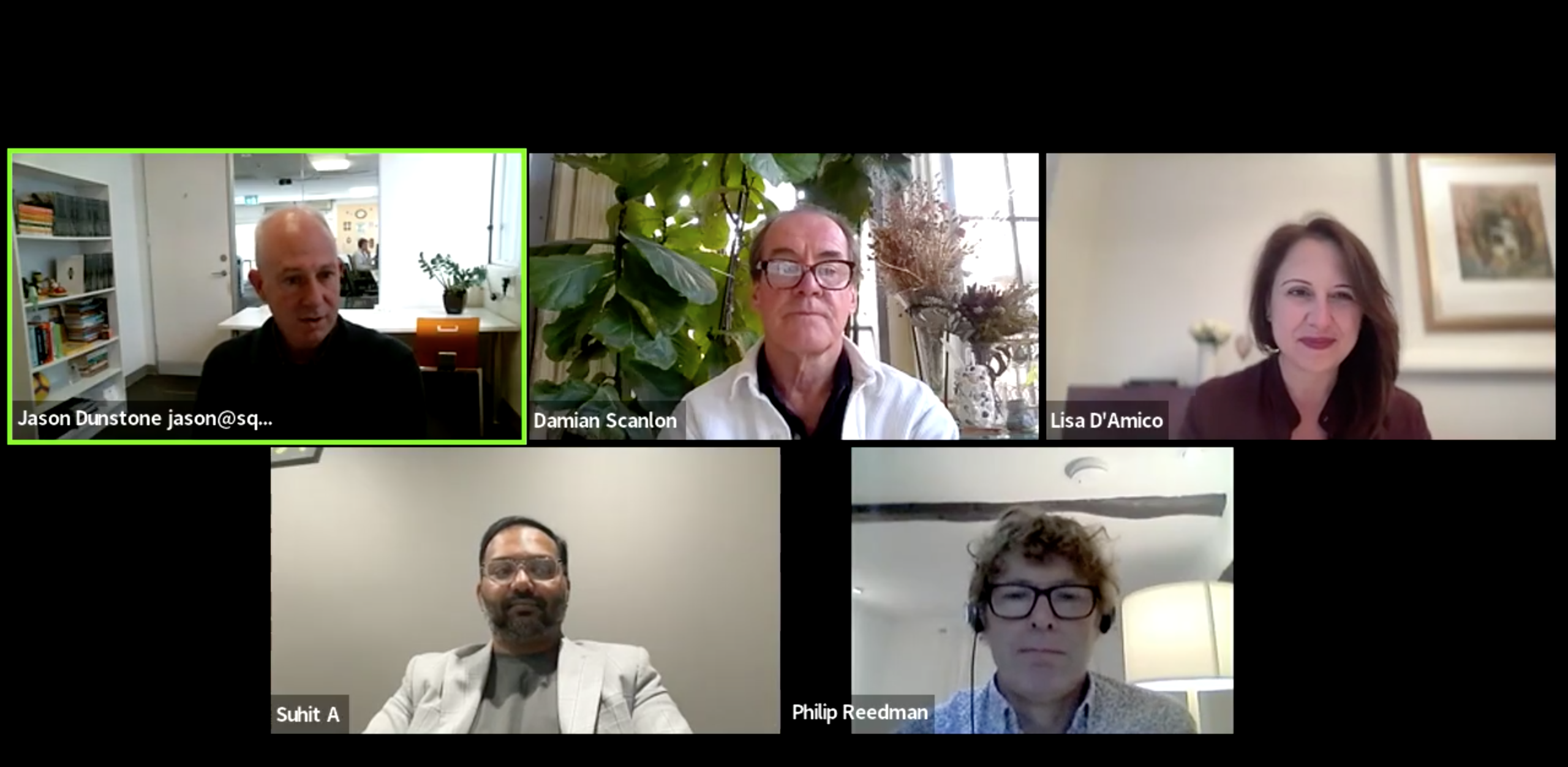Business Growth in Chaos
This week we had an inaugural LinkedIn Live Panel event – Business Growth in Chaos – with myself facilitating a discussion with four recent Think! guest writers Lisa D’Amico (Global Executive / CMO), Phil Reedman (Master of Wine / Advisor), Damian Scanlon (Executive / MBA Program Director) and Suhit Anantula (Local / Global Innovator), with panel members crossing Adelaide to Melbourne and the Cotswolds in the United Kingdom.
What were the key themes as to how to grow a business in chaos?
1. Adaptability and Flexibility
“We’ve got to be nimble and adapt to the situation. The wine industry has always been hard, and we need to keep finding ways to adjust.” Phil Reedman
Embrace Change: Businesses must be willing to pivot and adapt to rapidly changing circumstances. This involves rethinking strategies, business models, and operations to meet new challenges.
Agility in Operations: Streamlining operations to be responsive to market changes is crucial. This requires flexible processes and a responsive supply chain.
2. Innovation and Creativity
“We should see this current moment as an opportunity to reimagine our business and be something else. Chaos can be good because it upends existing norms and creates opportunities for those ready to change.” Suhit Anantula
Innovative Solutions: Continuously seeking creative ways to meet customer needs can differentiate a business. Leveraging technology and introducing new products or services are key strategies.
Process Innovation: Innovations in processes, such as bulk shipping and packaging near markets, can offer significant advantages, including environmental benefits and extended shelf life for products.
3. Customer Focus
“You’ve got to be in the market and start seeing what’s going on because all your energy and innovation happens when you are watching consumers and listening when you are in the field.” Lisa D’Amico
Understanding Customer Needs: Deeply understanding and prioritising customer needs is essential, especially during challenging times. Tailoring products and services to these needs can drive customer loyalty.
Ethnographic Research: Engaging in ethnographic research by observing and interacting with customers in their environments provides valuable insights into their behaviours and preferences.
4. Financial Management
“Good businesses will always maintain cash to a level that they can actually support themselves during tough times as they respond and they change.” Damian Scanlon
Cost Efficiency: Effective cost management by cutting unnecessary expenses and optimising resources helps maintain financial health.
Cash Reserves: Maintaining cash reserves to ride through difficult times is critical. Businesses should be prepared for economic downturns with a financial buffer.
5. Strategic Planning
“You’ve got to have a clear vision of where you want to be and what you’re good at. Strategic thinking is about the questions you are asking and building a culture that always asks those questions.” Damian Scanlon
Long-term Vision with Short-term Goals: Balancing long-term strategic goals with actionable short-term plans helps businesses navigate uncertainty while staying focused on their ultimate objectives.
Scenario Planning: Preparing for various future scenarios allows businesses to respond proactively to different potential conditions.
6. Building Resilience
“You’ve got to have a solid foundation and then target a mix of markets. Invest in long-term opportunities while maintaining a strong base to ensure resilience.” Phil Reedman
Risk Management: Identifying and mitigating potential risks protects the business from severe impacts. Diversifying revenue streams and markets reduces dependency on a single source.
Learning from Failures: Using setbacks as learning opportunities to improve and grow stronger is vital.
7. Leadership and Team Dynamics
“Our job is to inspire people to keep going and to keep telling that story in the right way. Keeping your team focused on what they can control is vital.” Lisa D’Amico
Strong Leadership: Effective leadership is crucial for guiding a business through chaos. Leaders should be transparent, decisive, and supportive.
Empowering Employees: Engaging and empowering employees to contribute ideas and take ownership can drive innovation and performance.
8. Leveraging Technology
“Big data and AI are becoming much more accessible. You can go hyper-local in your marketing, understand the market at a granular level, and iterate quickly.” Suhit Anantula
Digital Transformation: Embracing digital tools and technologies can enhance efficiency, improve customer engagement, and open new business opportunities.
Data-Driven Decisions: Utilising data analytics to make informed decisions and predict future trends is crucial for staying competitive.
9. Networking and Collaboration
“If smaller producers themselves can’t do some formal research, then I think there’s a role for the industry associations representing each region to provide that support.” Phil Reedman
Building Partnerships: Collaborating with other businesses, organizations, and stakeholders can provide support, resources, and new opportunities.
Community Engagement: Engaging with the community and building strong relationships can foster loyalty and support.
10. Global Perspective
“I would always suggest thinking global, even if you don’t have plans for global. The world is huge, but digital tools make it smaller and accessible. Focus on cities and act local within them.” Lisa D’Amico
Think Global, Act Local: Businesses should consider global markets from the start, even if initial plans are domestic. Understanding and targeting specific cities or regions can help tailor strategies effectively.
Exploring New Markets: Considering emerging markets in the global south, such as South Asia and Africa, offers new opportunities for growth. Understanding cultural differences and market dynamics is essential for success.
These themes highlight that businesses can thrive in challenging economic times by being adaptable, innovative, customer-focused, financially prudent, and strategically resilient, with strong leadership and the effective use of technology.
Thank you to those who attended, and stay tuned for more.




